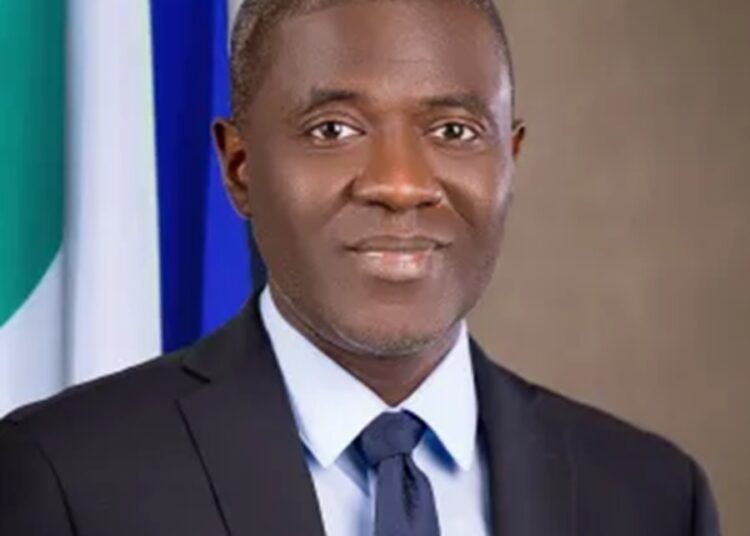Nigeria’s ICT and telecom sectors have seen both progress and challenges over the past year. While President Bola Ahmed Tinubu’s government has shown a clear commitment to modernizing the telecom industry, stakeholders say there are still issues that need to be addressed before the full potential of the sector can be realized.
As part of his Renewed Hope Agenda, President Tinubu has promised a brighter future for Nigerians, focusing especially on empowering youth and women through the digital economy. The Honourable Minister of Communications, Innovation, and Digital Economy, Dr. Bosun Tijani, has introduced a plan titled *“Accelerating Our Collective Prosperity through Technical Efficiency,”* aiming to drive economic growth by enhancing productivity through digital innovation.
A big part of Dr. Tijani’s strategy is improving the country’s telecom infrastructure, which is seen as essential for a strong digital economy. His plan sets ambitious targets, including improving Quality of Service (QoS) by 50% by 2024, increasing broadband access to 70% by 2025, and providing 80% coverage of the population by 2026, with a focus on underserved areas. Other goals include reducing the rural unconnected population from 61% to less than 20% by 2027 and increasing broadband investment by up to 500% by the end of the decade.
To help achieve these goals, the Nigerian Communications Commission (NCC), led by Dr. Aminu Maida, has identified three key areas to focus on: consumers, industry players, and the government. Dr. Maida’s approach aims to balance the needs of each of these groups while working to meet President Tinubu’s agenda.
For consumers, Maida focuses on improving the overall *Quality of Experience* (QoE) — not just the technical Quality of Service (QoS). This means ensuring that consumers can easily choose their networks, enjoy a smooth onboarding process, pay fair prices, receive good customer service, and have a hassle-free exit if they choose to leave. The NCC has also acted on complaints about data depletion, ordering mobile network operators (MNOs) to audit their billing systems and review tariff plans for transparency.
On the industry side, the NCC under Dr. Maida has been working to improve the sector’s resilience. The commission has pushed for telecom infrastructure to be classified as Critical National Infrastructure to better protect it, and it has successfully persuaded six states to waive Right of Way (RoW) fees. The NCC is also addressing issues like multiple taxation and is working with the Presidential Committee on Fiscal Policy and Tax Reforms to find solutions.
Despite these efforts, some challenges remain. Stakeholders have urged the government to address issues like forex instability, multiple taxation, and damage to telecom infrastructure. These factors continue to hinder growth in the sector.
Jide Awe, founder of Jidaw.com, praised initiatives like the 3MTT program, which aims to train three million Nigerian youths in digital technology and skills. He also welcomed the arrival of Meta’s deep-sea cable, which is expected to boost internet capacity. Awe highlighted the Nigeria Data Protection Act as a positive step toward building trust in the digital economy.
However, Awe emphasized that the benefits of these initiatives will only be realized if they are effectively implemented. He pointed out that high internet costs remain a significant barrier for many Nigerians and that unreliable electricity continues to hold back the growth of the digital economy.
To address these issues, Awe called for stronger public-private partnerships, incentives for expanding rural infrastructure, and policies to lower internet costs. He also stressed the need to improve power supply to support ICT infrastructure, as unstable electricity is a major hindrance to tech development.
Gbolahan Awonuga, head of operations at the Association of Licensed Telecommunications Operators of Nigeria (ALTON), also pointed out that challenges like high RoW fees, multiple taxation, and insecurity of telecom infrastructure are slowing down progress in the sector. He emphasized the need for telecom infrastructure to be recognized as Critical National Infrastructure to protect investments and foster growth.
**Looking Ahead**
As Nigeria moves into the next year, stakeholders have urged Dr. Tijani and Dr. Maida to focus on fostering local innovation, creating collaborations between education, the private sector, and government, and supporting policies that encourage competition and fairness in the market. They also called for clearer and more consistent regulations that attract foreign investment while protecting consumers and ensuring fair competition.
By addressing these ongoing challenges and working together with all stakeholders, Nigeria can continue to grow its digital economy, creating more job opportunities, improving access to services, and bridging the digital divide.




